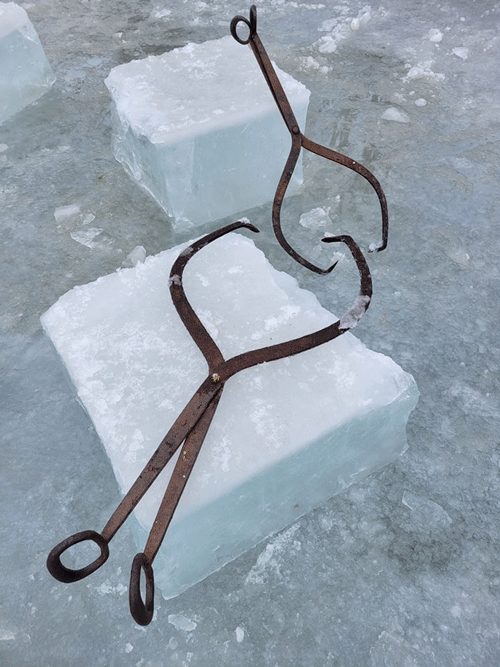About The Book
The Well: Poems from Twin Pines Farm illuminate the lives of an American farm family. The poems are drawn from her own experience growing up on the farm in the 1950s and from the contents of a pine trunk filled with family papers, letters, and diaries of her ancestors who established the farm and made it flourish for more than two centuries. The poems convey her family’s relationship with the land and the people and provides a account of their aspirations, their contributions of hard work and ingenuity, and their unconquerable ability to thrive whatever the circumstances they encountered.
All proceeds of The Well: Poems from Twin Pines Farm will be donated to the Otsego Land Trust, a 501c3 organization in Otsego County, Cooperstown, New York.
136 pages, 79 poems
Black & white and color photographs and illustrations
Softcover edition designed by Robert Perry
Cover photography by Paul Kidder
Watercolor painting of Twin Pines by Robert Huxtable
Published by Butternut Press
Reviews
“These superb and finely crafted poems give voice to women who lived through war, who cherished family, who wrote letters, who above all left a precious chronicle of their moment. And all against the backdrop of a beloved landscape. The true power of these poems is that they never settle for a lost world. Through lyric speech and searing detail, the poetry brings that world into our present, where it will remain in the reader’s memory for a long time.”
“Your book..I got it, read it, we talked about it, and admired it very much. It is a remarkable and memorable book. And assuming you won’t mind, we will pass this new copy on to our granddaughter, Virginia for ordering for our bookstore.”
“The Well proves that creative expression is a powerful tool in creating a sense of self and place beyond what genealogists and local historians can do. Mohr’s poems are not only a window into the past but also a deeply emotional means of transporting one there. To live momentarily in her world is to achieve an awareness of the human spirit that dwells in humble places.”
Selected Poems
Below is a selection of works from “The Well”. Click on any plus sign to read.
-
Something in me wants
to walk again from Providence
with them—living, dead,
and unborn. Their lives wound
tightly in me. Now they are names
in our bible. Some birthed
in snowstorms, others
in spring thaw or born on Thursday
so I could plant corn on Friday. -
(Rhoba Williams McKoon’s headstone)
Move me, wheel,
from the sea, by the Hudson,
through woods, fields.My hand on your rim.
Growling bellies, oxen smells.
Make my feet go with my prayers.Have I brought what I need
for the world ahead?
Who will ask for my stories?Will I find my Snakeroot
and Sweet Ciceley?
Will the peonies survive?
Will I find good dirt, water for a well? -
A soft fold over the edge, pink shoes lifted,
her image buoyant in the water below.
She stares into the cylindrical dark,
past moss and mottled snails pulled back
in their casings. Her face disappears
in the bucket splash.The and then not.
Now the earth’s sweet liquid brims,
spills and falls back on the grass,
circles through roots to the well,
the river, and the bass pond. -
Sisters remember the rescue of drowning
cats, Sunday train, ironing the family
tablecloth for Thanksgiving, sleigh rides
on Christmas—all remembered with different
authority. Birth order and farm chaos shrank
and aligned us until we formed our own feminine
geometry. Individual angles on a spring day.
Bodies, hearts, brains beat against each other
with multiple meanings for the same green
shutters on a clapboard farmhouse. -
This will be my epitaph—sixty three years in the kitchen.
Adeline’s lamentIn one bowl: grief.
In another: mounds of strength.
Shoulders hunched.
Hands scrape corn from cobs.Egg cakes on breakfast plates,
while she cans the Bartlett pears,
picks and shells peas.
Ready for months of winter.No picnics on a warm beach,
ocean waves, no empty days.
Just steam from the pressure
cooker and tomatoes in the sink. -
I must write how it was—
how straight he walked down the road
with his new canteen and musket.His letters of boredom, rot,
a bloodied creek. His father brought him
back in a pickle barrel.
My only son—we needed him home.Outside, chimney smoke fades
in the early hours—
my stropped heart by the well
and wormed fence
with the ache of everything.Thunder starts. Time will come
when I can sleep.
Blessed rain but so little erased
with the rush and suck of water. -
To come in from the barn,
packed in the eye of a blizzard,
his hands grip ropes. He fights
a white wind
no stopping, eyes closed, hand over hand.Inside the house, Dad takes whiskey.
Lots of whiskey. Jiggers straight.
Wind still blowing through him,
the whole of him
thanks the ropes. Slowly
he sinks into the sofa. No one talks.Then, high laughter rushes out,
wind driven
or whiskey driven. Overlapping laughter,
like another aspect of nature,
like breaking waves.Hours pass. Trees twist hard,
Slapped and shrouded. Finally still.
Our mailbox hangs high from a tree
like a white dove.







